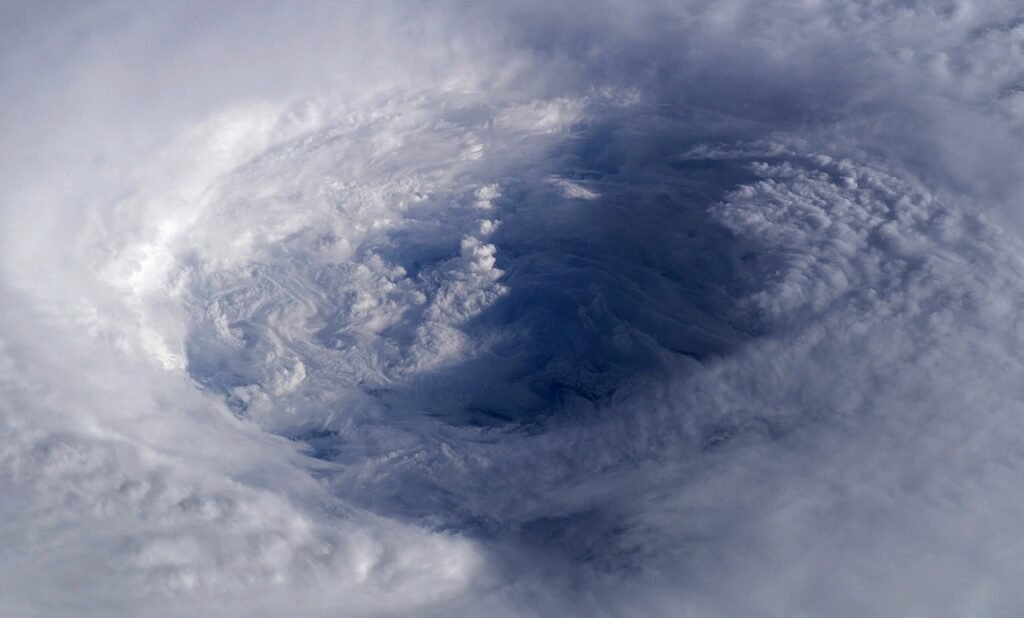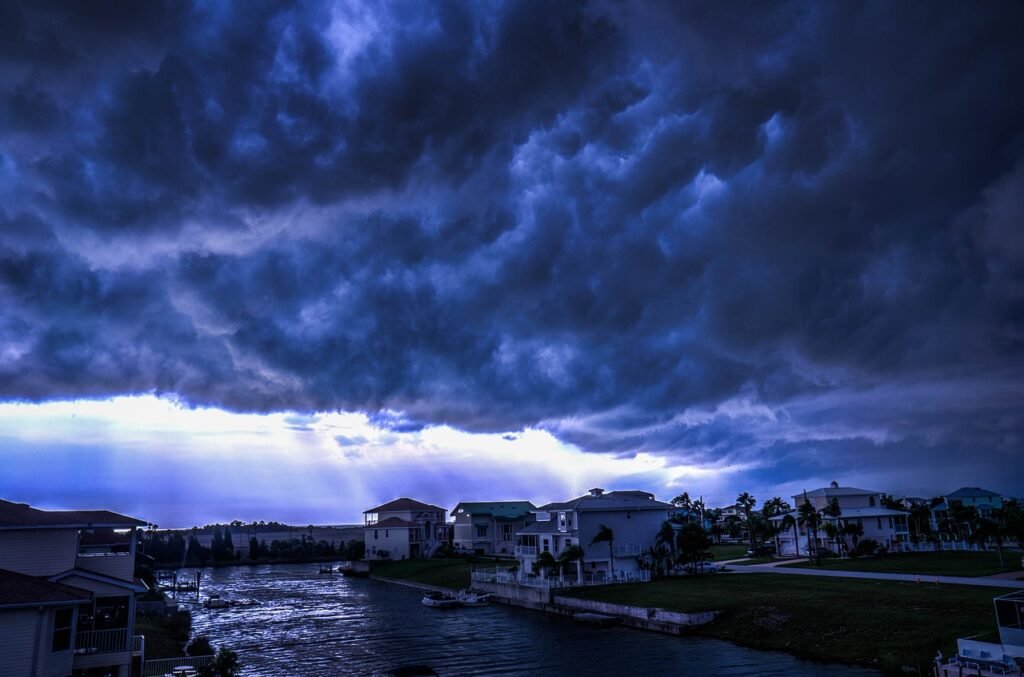Ah, the stunning beaches, vibrant culture, and warm sunshine of the Caribbean – it’s no wonder you’ve chosen to embark on a tropical getaway to this picturesque region. However, as you may already know, the Caribbean is also notorious for its unpredictable weather, with hurricanes and heavy rainstorms making an occasional appearance. But worry not, dear traveler, for in this article, we will guide you through some essential tips and tricks on how to prepare for the tropical weather in the Caribbean. So sit back, relax, and let us equip you with the knowledge you need to make the most of your vacation, come rain or shine!
Check the Weather Forecast
Stay informed about the current weather conditions
When planning a trip to the Caribbean, it is crucial to stay informed about the current weather conditions. The tropical weather in the Caribbean can be quite unpredictable, so monitoring the weather forecast becomes even more important. By keeping an eye on the forecast, you can be prepared for any changes that might occur during your stay.
Monitor any changes in the forecast
While it is essential to check the initial weather forecast before your trip, it is equally important to monitor any changes that may occur throughout your stay. Tropical weather can change rapidly, and sudden storms or hurricanes can develop. By staying updated on the forecast, you can adjust your plans accordingly and ensure the safety and enjoyment of your vacation.
Use reliable weather forecasting sources
When checking the weather forecast for the Caribbean, it is essential to use reliable and trustworthy sources. Many websites and apps provide accurate weather information for the region. Sources such as the National Hurricane Center, The Weather Channel, and local meteorological agencies are reliable sources for obtaining accurate and up-to-date weather forecasts.
Prepare accordingly based on the expected weather
Once you have checked the weather forecast, it is crucial to prepare accordingly based on the expected weather conditions. Pack suitable clothing, protective gear, and any necessary medications. By being prepared, you can fully enjoy your time in the Caribbean and make the most of your tropical vacation experience.
Pack Appropriate Clothing
Lightweight and breathable clothing is essential
When packing for a tropical trip to the Caribbean, it is vital to choose lightweight and breathable clothing. The hot and humid weather in the region can be quite intense, and wearing heavy or restrictive clothing can be uncomfortable. Opt for fabrics such as cotton or linen, as they are breathable and help to keep you cool in the tropical climate.
Pack shorts, dresses, and tank tops for hot weather
In the Caribbean, the weather can get scorching hot, particularly during the summer months. Pack an assortment of shorts, dresses, and tank tops to stay comfortable in the heat. These clothing items allow for better air circulation and help to keep your body cool. Remember to choose light colors to reflect the sun’s rays and avoid darker shades that absorb heat.
Bring a light sweater or jacket for cooler evenings
While the Caribbean is known for its warm climate, evenings can sometimes be cooler, especially if you are near the coast or in higher elevations. It is always a good idea to pack a light sweater or jacket to keep you warm during these cooler periods. This way, you can fully enjoy watching the breathtaking sunsets or strolling along the beaches without feeling chilly.
Don’t forget to include swimwear and beach attire
A trip to the Caribbean would not be complete without enjoying its pristine beaches and crystal-clear waters. Pack your favorite swimwear and beach attire to fully embrace the tropical paradise. Whether you prefer bikinis, board shorts, or one-piece swimsuits, make sure to pack enough for your entire stay. Don’t forget beach towels, flip flops, and a beach bag to carry all your essentials.
Carry a rain jacket or poncho for unexpected showers
While the Caribbean is known for its sunny and beautiful weather, it is essential to be prepared for unexpected rain showers. Pack a lightweight rain jacket or poncho to keep you dry during these occasional downpours. It is better to be proactive and have protection from the rain to prevent your plans from being dampened by unexpected weather changes.

Protect Yourself from the Sun
Wear sunscreen with a high SPF
When traveling to the Caribbean, protecting yourself from the strong tropical sun is crucial. Apply sunscreen with a high sun protection factor (SPF) to shield your skin from harmful UV rays. Choose a broad-spectrum sunscreen that protects against both UVA and UVB rays. Don’t forget to reapply every few hours, especially after swimming or sweating.
Use a hat or visor to shade your face and head
To provide additional protection for your face and head, wear a hat or visor. Wide-brimmed hats are ideal as they provide shade not only for your face but also for your neck and shoulders. This added protection helps prevent sunburns and reduces the risk of heatstroke. Choose a hat or visor that is made from breathable material to keep you comfortable in the tropical heat.
Wear sunglasses to protect your eyes from UV rays
Just as your skin needs protection, your eyes also need defense against the sun’s harmful UV rays. Wear sunglasses with UV protection to shield your eyes from the intense sunlight. Look for sunglasses that block 100% of UVA and UVB rays to ensure optimal eye protection. Additionally, polarized lenses can help reduce glare, enhancing your vision in the bright tropical surroundings.
Seek shade during the peak sun hours
The peak sun hours in the Caribbean are typically from late morning to early afternoon when the sun is strongest. During these hours, it is advisable to seek shade to avoid prolonged exposure to the intense sunlight. Rest under beach umbrellas, palm trees, or any other shady spots to give your skin a break from the direct sun. This will help prevent sunburns and overheating.
Drink plenty of water to stay hydrated
Staying hydrated is crucial when visiting the Caribbean, as the hot weather can cause excessive sweating and increase the risk of dehydration. Drink plenty of water throughout the day to replenish fluids lost through perspiration. Keep a reusable water bottle with you at all times and refill it regularly. Avoid sugary drinks and excessive caffeine as they can further dehydrate your body.
Pack Necessary Medications
Ensure you have an ample supply of prescription medications
If you take any prescription medications, it is essential to ensure you have an ample supply for the duration of your trip. Check that you have enough medication to last throughout your stay in the Caribbean and bring extra, just in case. Carry your medications in their original packaging and store them in a cool, dry place to maintain their efficacy.
Pack over-the-counter medicines for common ailments
In addition to prescription medications, it is advisable to pack over-the-counter medicines for common ailments. Items such as pain relievers, antihistamines, antacids, and anti-diarrheal medications can come in handy if you experience any unexpected health issues while on vacation. These medications can provide relief from minor discomforts and help you enjoy your trip without interruptions.
Include motion sickness pills if you plan to travel by boat
If you plan to engage in activities that involve traveling by boat, such as island hopping or snorkeling trips, it is crucial to consider motion sickness pills. These pills can help prevent or alleviate symptoms of motion sickness, such as nausea and dizziness, that may be experienced while sailing or cruising. Packing motion sickness pills ensures a more comfortable and enjoyable boat experience.
Carry mosquito repellent to prevent insect bites
The Caribbean is home to various mosquito species, and their bites can be irritating and potentially transmit diseases such as dengue fever or Zika virus. To protect yourself from mosquito bites, pack an effective mosquito repellent with DEET. Apply the repellent to exposed areas of skin according to the instructions on the product. This will help repel mosquitoes and reduce the risk of insect-related discomfort and illnesses.

Prepare for Rainy Days
Carry a waterproof bag or cover for your electronics
To protect your electronic devices from unexpected rain showers, it is advisable to carry a waterproof bag or cover. Investing in a waterproof phone case or a waterproof bag that can accommodate your devices can prevent water damage in case of sudden rain. This way, you can continue capturing your precious memories and stay connected without worrying about the rain affecting your devices.
Pack a small umbrella or portable rain shelter
In the Caribbean, weather conditions can change quickly, and rain showers may occur unexpectedly. Packing a small umbrella or portable rain shelter can provide quick and easy protection from the rain. These compact and lightweight options can easily fit into your bag or backpack, ensuring that you are prepared for any sudden downpours that might occur during your trip.
Bring waterproof shoes or sandals
Normal footwear can become uncomfortable and waterlogged during rainy days in the Caribbean. To ensure you stay comfortable and dry, consider bringing waterproof shoes or sandals. These water-resistant options will keep your feet protected from rain and allow you to continue exploring the beautiful islands without worrying about your shoes getting wet or damaged.
Consider packing board games or books for indoor entertainment
While outdoor activities are the highlight of any Caribbean vacation, it is essential to have some indoor entertainment options in case of rainy days. Consider packing board games, card games, or books to keep yourself occupied during any periods of inclement weather. This way, you can still have fun and enjoy your time indoors, creating memorable experiences even on days when the weather isn’t ideal.
Stay Hydrated
Drink plenty of water to stay hydrated in the hot climate
The hot and humid climate of the Caribbean can easily lead to dehydration, making it crucial to drink plenty of water throughout the day. Aim to drink at least eight glasses of water per day and more if you are engaging in strenuous activities or spending extended periods under the sun. Staying properly hydrated will help you maintain energy levels, regulate body temperature, and prevent heat-related illnesses.
Avoid excessive alcohol consumption as it can dehydrate you
While it may be tempting to indulge in tropical cocktails or enjoy local alcoholic beverages, it is important to avoid excessive alcohol consumption. Alcohol can dehydrate your body, exacerbating the effects of the hot climate. If you do choose to drink alcohol, do so in moderation and make sure to balance it with plenty of hydrating fluids such as water or coconut water.
Consider packing electrolyte packets for added hydration
In addition to drinking water, packing electrolyte packets can provide an extra boost of hydration. These packets contain essential minerals and electrolytes that replenish your body’s electrolyte balance, which can be easily depleted in hot weather. Simply mix the packet with water to create a refreshing and electrolyte-rich drink that will help keep you hydrated throughout your tropical journey.
Be mindful of the quality of water and opt for bottled water
While some Caribbean destinations have safe tap water, it is generally advisable to opt for bottled water for drinking and brushing your teeth. Some islands may have water supplies that are not completely safe for consumption, and it is better to err on the side of caution. Always check the labels to ensure the bottles are properly sealed and avoid consuming water from questionable sources.

Prepare for Mosquitoes
Pack mosquito repellent with DEET
Mosquitoes are prevalent in the Caribbean, particularly during certain seasons, and their bites can put a damper on your vacation experience. To protect yourself, pack mosquito repellent that contains DEET. DEET is an effective ingredient that repels mosquitoes and other biting insects. Apply the repellent to exposed skin and clothing according to the product instructions to keep these pesky insects at bay.
Consider using insect repellent with long-lasting protection
If you prefer a more convenient and longer-lasting method of mosquito repellent, consider using insect repellent with long-lasting protection. These products provide extended protection against mosquitoes, reducing the need for frequent reapplications. Look for repellents that boast long-lasting formulas, allowing you to explore the Caribbean without constant worry about mosquito bites.
Wear loose-fitting and light-colored clothing to deter mosquitoes
Mosquitoes are attracted to dark colors and tight-fitting clothing, so it is best to avoid these when possible. Instead, opt for loose-fitting and light-colored clothing that can help deter mosquitoes. Lightweight fabrics such as cotton or linen can also make it more difficult for mosquitoes to bite through the clothing. By dressing strategically, you can minimize your chances of being bitten and enjoy a mosquito-free vacation.
Sleep under a mosquito net to avoid bites
When staying in accommodations that are not fully enclosed or air-conditioned, such as eco-lodges or open-air cottages, sleeping under a mosquito net is highly recommended. Mosquito nets provide an additional layer of protection while you sleep, acting as a physical barrier between you and the mosquitoes. Ensure that the net is properly tucked in and does not have any holes or gaps where mosquitoes can enter.
Stay Updated on Travel Advisories
Check for any travel advisories or warnings regularly
Before and during your trip to the Caribbean, it is essential to stay updated on any travel advisories or warnings that may be in place. Government agencies or international organizations may issue travel advisories to inform travelers about potential risks or concerns in certain areas. Regularly checking for updated advisories will help you make informed decisions about your travel plans and ensure your safety and security.
Register your travel plans with your country’s embassy
To receive important updates and assistance in case of emergencies, it is recommended to register your travel plans with your country’s embassy or consulate. By doing so, you will be included in their database and can receive relevant information, alerts, and assistance when needed. Registering your travel plans is a proactive step to take to ensure that relevant authorities can locate you and provide necessary support if necessary.
Follow local news sources for updates on safety and security
Staying informed about local news is essential when traveling, as it provides insight into current events, weather updates, and any safety concerns in the region. Follow local news sources, such as newspapers, television stations, or radio stations, for updates on safety and security in the Caribbean. By staying informed, you can make informed decisions about your itinerary and take necessary precautions to ensure a safe and enjoyable trip.
Adhere to any recommended safety precautions
As part of staying updated on travel advisories and following local news sources, it is crucial to adhere to any recommended safety precautions provided by authorities. These precautions may include avoiding certain areas, being cautious in crowded places, or following specific guidelines during natural disasters or emergencies. By following these recommendations, you can minimize any potential risks and ensure your safety while exploring the Caribbean.
Prepare for Power Outages
Carry a power bank or portable charger for your electronics
Power outages can occur unexpectedly in the Caribbean, particularly during severe weather events or in remote areas. To ensure that you can stay connected and keep your electronic devices charged, carry a power bank or portable charger. These handy devices can provide a backup power source for your smartphones, tablets, or other electronic devices, allowing you to stay connected and capture memories even during power outages.
Pack a flashlight and extra batteries
In addition to a power bank or portable charger, it is essential to pack a flashlight and extra batteries. Power outages can occur at night, and having a reliable light source is crucial for navigating in the dark. Choose a sturdy, reliable flashlight and pack extra batteries to ensure you have ample backup power to last through any potential power outages.
Consider bringing a solar-powered charger
For a sustainable and eco-friendly option, consider bringing a solar-powered charger for your electronic devices. These chargers harness solar energy to recharge your devices, making them an excellent alternative during power outages or when access to electricity is limited. Solar-powered chargers are lightweight, portable, and can provide a reliable power source as long as sunlight is available.
Have a stocked emergency kit with basic supplies
Preparing for power outages also means being equipped with a stocked emergency kit. Include essential supplies such as a first aid kit, non-perishable food, clean water, a whistle, and a multi-purpose tool. Having these items readily available can be invaluable during emergencies or extended power outages. It is essential to periodically check and replenish your emergency kit to ensure that all supplies are up to date and easily accessible when needed.
Be Mindful of Food and Water Safety
Avoid consuming tap water and opt for bottled water
When visiting the Caribbean, it is generally best to avoid consuming tap water as it may not be safe for consumption. Opt for bottled water or water that has been properly filtered or treated. Always check the seals on bottled water to ensure that it is safe to drink. Keeping yourself hydrated with safe and clean water minimizes the risk of water-borne illnesses and ensures a healthy and enjoyable trip.
Ensure that any fruits or vegetables are properly washed
To minimize the risk of foodborne illnesses, ensure that any fruits or vegetables you consume are properly washed. Rinse them thoroughly with safe and clean water before eating or preparing them. This helps remove any dirt, pesticides, or contaminants that may be present on the surface. Taking this simple precaution can safeguard your health and allow you to fully enjoy the delicious tropical fruits and vegetables the Caribbean has to offer.
Choose restaurants and food vendors with good hygiene practices
When dining out in the Caribbean, it is essential to choose restaurants and food vendors that prioritize good hygiene practices. Look for establishments that have clean and well-maintained premises, staff members who follow proper food handling procedures, and a reputation for cleanliness. This ensures that the food you consume is prepared and served safely, reducing the risk of foodborne illnesses.
Avoid consuming undercooked or raw seafood
While seafood is a popular staple in the Caribbean, it is vital to ensure that it is properly cooked before consumption. Raw or undercooked seafood, such as ceviche or lightly seared fish, may pose a risk of foodborne illnesses. Make sure that any seafood you consume is fully cooked, piping hot, and served at a safe temperature. Enjoy the diverse array of seafood dishes while prioritizing your health and well-being.
By following these tips to prepare for the tropical weather in the Caribbean, you can have a safe, enjoyable, and memorable vacation. Remember to stay informed about the weather conditions, pack appropriate clothing and protective gear, and take necessary precautions to protect yourself from the sun and insects. Additionally, be mindful of food and water safety, stay updated on travel advisories, and prepare for any potential power outages. With proper planning and preparation, you can make the most of your tropical getaway and create unforgettable experiences in the captivating Caribbean.


